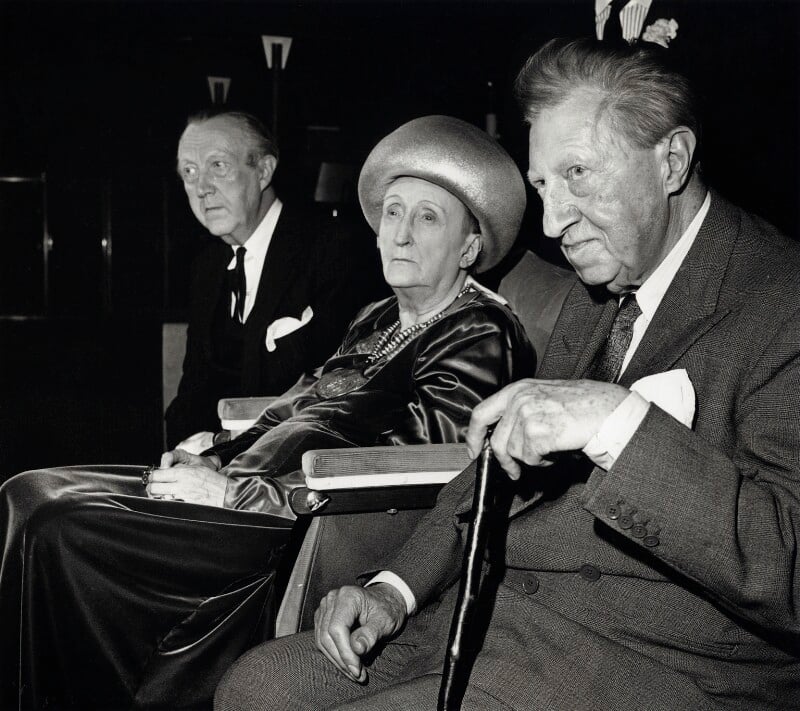The Great War and poetry go hand in hand. For Rupert Brooke “If I should die, think only this of me…” For Wilfrid Owen “My friend, you would not tell with such high zest / To children ardent for some desperate glory, / The old Lie: Dulce et decorum est / Pro patria mori.”
Both Brooke and Owen died on the front, as did the US poet Joyce Kilmer, born 6 December 1886.
Kilmer’s lyric “Rouge Bouquet” of 1918 is something of a counterpoint to Owen:
There is on earth no worthier grave
To hold the bodies of the brave
Than this place of pain and pride
Where they nobly fought and nobly died.
Kilmer’s poem was read over his own grave when he died a few weeks later. Owen would survive until a week before the Armistice in November.
Kilmer was an established poet when he died, with his 1913 poem “Trees” his most well-known work. Owen on the other hand published little before his death. It was left to the literary Edith Sitwell to publish him after the war.
Sitwell and her brothers Osbert and Sachervell were the glitterati of the literati for much of their lives. Osbert, born 6 December 1892, also saw war and his 1915 “Babel” was the result:
And we are left to drink the lees
Of Babel’s direful prophecy.
Speaking of lees and trees, Sitwell and Kilmer have the peculiar distinction of sharing a birthday and a parody from the king of rhyme, Ogden Nash.
For Kilmer, Nash produced the famous:
I think that I shall never see,
A billboard lovely as a tree.Perhaps, unless the billboards fall,
I’ll never see a tree at all.
For the Sitwells, a family effort:
How many miles to Babylon?
Love-in-a-mist and Bovril.
Are there more Sitwells than one?
Oh yes, there are Sacheverell.
Saint Nicholas of Myra is the model for Santa Claus. He died on 6 December 343, and 6 December is his feast day. Nash again:
Once there was a saint called St. Nicholas of Myra,
And his reputation for veracity was better than that of
Ananias and Sapphira,
So when he recently called upon me with his complaint,
Well, I knew I was listening to a truthful saint.
He was also an angry saint, he was spoiling for a rhubarb
or a scrimmage;
He was indignant over the vulgarization of his public image.
He said he hardly dared step out of Heaven for very shame
Because some obese buffoon known as Santa Claus had
mis-appropriated his good name.
